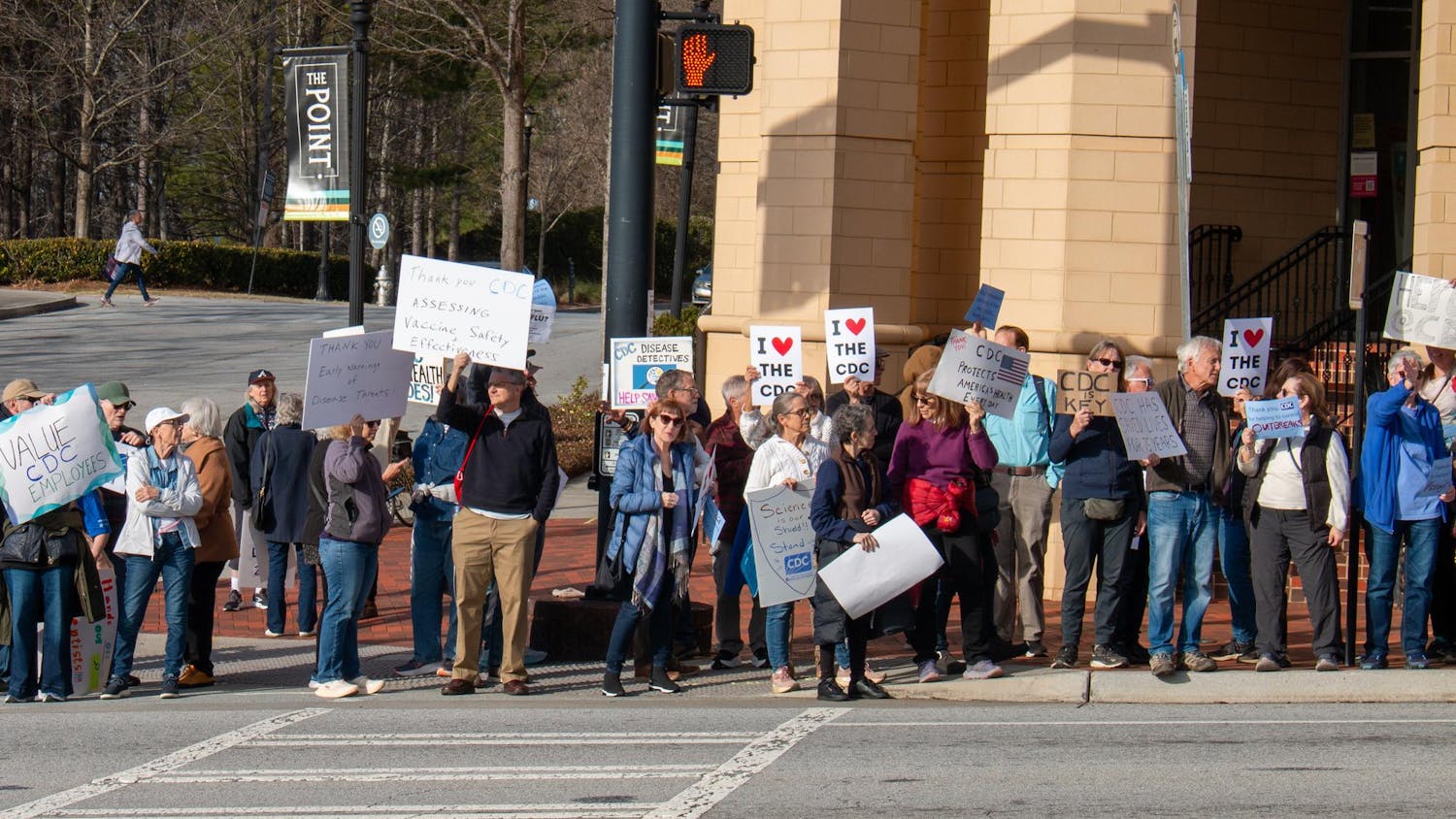In response to the rapidly developing crisis in Ukraine and Russia, Emory University's Russian, East European and Eurasian Studies (REEES) program and the Georgia Institute of Technology hosted a webinar on March 14 to discuss the origins of the conflict and the push-back from the Ukrainian people fighting for their homeland.
The webinar’s lineup featured distinguished journalist at the Atlantic Anne Applebaum and Professor of Ukrainian History at the University of Victoria in Canada Serhy Yekelchyk.
The conversation opened with a message from REEES Program Director Juliette Apkarian, who expressed gratitude to those seeking a cease-fire amid the crisis and providing humanitarian aid to those caught in the middle.
Professor of Russian History Nikolay Koposov then introduced Applebaum. Applebaum focused on highlighting the dangerous ideologies held by Russian President Vladimir Putin, who she described as a totalitarian leader, and the sinister intentions behind his attempt to overtake Ukraine.
Applebaum further explained that after the fall of the Berlin Wall in 1989, while the world was in awe of the democratic victory, a young KGB officer — Vladimir Putin — was enraged by this political breakthrough. Embarrassed by his country’s loss of power, his initial encounter with democracy would play a major role in his later decision to launch an attack against Ukraine.
“He has said, since then, that this, the fall of the Soviet Union, was the greatest geopolitical catastrophe of the twentieth century,” Applebaum said.
Putin views Ukraine “as an ideological threat to his system,” Applebaum added. “Imagine if Ukraine, democratic and prosperous, integrated with the West. If they succeed, then maybe Russians will say ‘Why can’t we have that?’”

Ukraine’s insistence on democracy could result in an uprising in Russia. While Putin’s totalitarian position of power silences his people, there is still a chance that democracy can prevail and remove him from power.
Applebaum is especially frightened by Putin’s theory that “Ukraine is an entirely fake country.” While this claim may seem like a flippant theory, it uses genocidal language as a justification for his attack on Ukraine, Applebaum said.
“If it's not a real country, and it doesn’t have the right to exist, then it’s OK to kill lots of Ukrainians because they are standing in the way of the greater Russian state,” Applebaum explained.
Koposov also introduced Yekelchyk, who also touched on the concept of Ukraine as an illegitimate country. As an academic, this theory was not unfamiliar to him; it echoes the earlier thoughts of imperialist Russia.
“In the nineteenth century, [Imperial Russia] considered Ukrainians a foreign invention,” Yekelchyk said. “It is a very recognizable concept of Ukraine being artificial because it was being built on a principle which the Russian empire rejected outright, and that was the principle of transforming an empire into a nation-state.”
Although Putin holds this imperialist ideology, Yeklchyk said his logic represents a “historical misunderstanding.” The Russian empire's distaste for nation-statehood is ironic since its refusal to become one caused the empire to fall.
As a final message, Yekelchyk spoke out against “abstract humanism.” In response to the crisis, he has seen individuals posting images on social media with the slogan “no war,” where individuals do not necessarily make a stance.
“Abstract humanism doesn’t work in this situation because we know who the aggressor is, know the reason why this aggressor has arrived in Ukraine,” Yekelchyk said. “It’s not the issue of peace in an abstract world. It’s the issue of condemning this particular war.”
Since Ukrainians are fighting to maintain their political identity, Yekelchyk said that the conflict will likely escalate before simmering down. Nonetheless, Yekelchyk maintains that “Ukraine has the power to defeat the state [of Russia]” and is unwilling to easily give up their democratic nation.
“We need to understand that Ukraine is not only fighting for the West, but in fact, Ukraine is fighting for democratic Russia,” Yekelchyk said.









